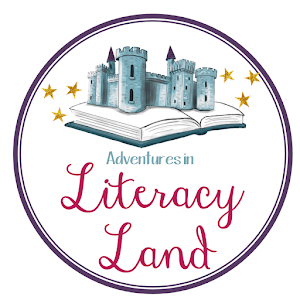Research says children that struggle with comprehension also struggle with vocabulary. This three-part series lends quick and easy ways to expand your students' vocabulary and also strengthen their overall comprehension. Revisit Sowing The Seeds Of Vocabulary (Part One) to help you understand and implement vocabulary in your classroom. The second post (Part Two) will remind you how important it is to use Marzano's Vocabulary Process and Multiple Intelligence Theory to reach all students. This post (Part Three) will walk you through implementing vocabulary whole group and small group. Enjoy engaging your students with vocabulary throughout this new school year and beyond!

Sowing The Seeds Of Vocabulary (Part Two)
 As we discussed in Part One research says children that struggle with comprehension also struggle with vocabulary. This three part series lends quick and easy ways to expand your students' vocabulary and also strengthen their overall comprehension. Please revisit Sowing The Seeds Of Vocabulary (Part One) to help you understand and implement vocabulary in your classroom. This post (Part Two) will remind you how important it is to use Marzano's Vocabulary Process and Multiple Intelligence Theory to reach all students!
As we discussed in Part One research says children that struggle with comprehension also struggle with vocabulary. This three part series lends quick and easy ways to expand your students' vocabulary and also strengthen their overall comprehension. Please revisit Sowing The Seeds Of Vocabulary (Part One) to help you understand and implement vocabulary in your classroom. This post (Part Two) will remind you how important it is to use Marzano's Vocabulary Process and Multiple Intelligence Theory to reach all students!
High Five Writing: An Easy Method for Complex Sentences
What are High Five Sentences?
While working with some second grade teachers last year, they voiced concerns about their student's sentence structure and feared it was too simple. We made a plan: High Five Sentences. As you would suspect...high five sentences are so great, you want to give someone a high-five. During this one day lesson, we challenged students to High Five Sentences...supporting them all the way. We broke the students into partners and we gave them a Who? and a Did What? puzzle. Acknowledging that we had the makings of a good sentence, these sentences were deemed "kindergarten sentences" by the second graders. We needs to amp up the sentence before we could call them High Five second grade sentences. First, we added more details to the Who? part of the sentence. We added a gold piece of puzzle and added adjectives. These students decided the lion was BIG and MEAN. Once we added the gold puzzle, we decided we only had a High 2 Sentence (whomp, whomp).

Summer Reading: Getting Books in Their Hands
In July of 2015 we did a book study of Richard Allington and Anne McGill-Frazen's "Summer Reading: Closing the Rich/Poor Reading Achievement Gap" . It was really eye opening to me to look at the achievement gap in relation to the summer. And my school took some actions to get more books into the hands of our students throughout the year. A Readbox, stronger "take-home" program, and more listening stations are just some examples.

One Game Board Plus Many Games Equals Stronger Students
As a reading specialist, I get to do things that other teachers may not get to do all the time. I use games to help my students with many of the various skills we focus on. As I wound down my year, I spent my final day with my students celebrating our successes with games. And I used the same board for every single game!
Subscribe to:
Posts (Atom)







